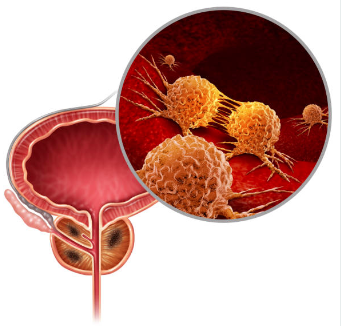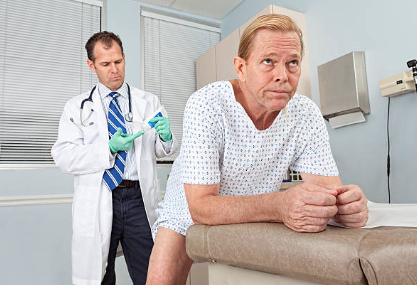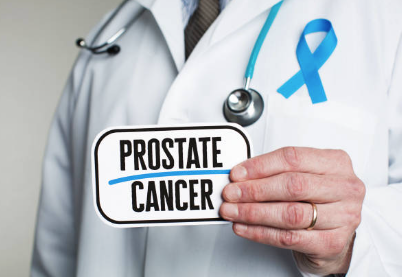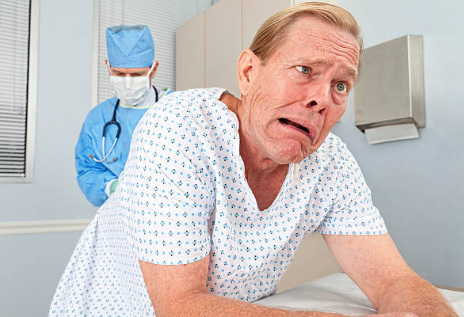Signs You Are Dying Of Prostate Cancer.

Signs You Are Dying Of Prostate Cancer. The Silent Killer Lurking Within – Are You Ignoring These Urgent Signs?
Prostate cancer—it’s the unspoken fear that haunts many men over 40. And sadly, some discover it too late. But knowledge is your most powerful weapon. In this article, we’ll break down the crucial warning signs—especially if you think, “It won’t happen to me.”
Understanding Prostate Cancer: The Stages
Prostate cancer develops in stages. Early on, it might show no symptoms at all. But as it progresses, danger signs appear:
- Stage 1 prostate cancer symptoms
- Stage 2 prostate cancer symptoms
- Stage 3 prostate cancer symptoms
- Stage 4 prostate cancer symptoms
Let’s dive into each stage, what to look out for, and why taking action can potentially save your life.
Stage 1 Prostate Cancer: The Hidden Threat
In stage 1, the cancer is small and confined to your prostate gland. This is the most treatable stage, but the problem is you likely won’t notice any symptoms. That’s why regular prostate exams are essential after 40.
Stage 2 Prostate Cancer: Subtle Warnings Appear
Stage 2 cancer is larger but still within the prostate. This is where you might start experiencing changes, including:
- Difficulties with urination: Trouble starting a stream, a weak stream, or the need to go more often, especially at night
- Blood in your urine or semen
- Erectile dysfunction
- Painful ejaculation
Stage 3 Prostate Cancer: The Stakes Get Higher
By stage 3, cancer has spread beyond the prostate, often to nearby tissues or lymph nodes. Symptoms may intensify or include:
- Bone pain, especially in the hips, spine, or ribs
- Unexplained weight loss
- Swelling in the legs or feet
Stage 4 Prostate Cancer: The Fight for Your Life
Stage 4 prostate cancer has spread to distant areas like the lungs, liver, or bones. At this point, the goal often shifts from a cure to prolonging life and managing these severe symptoms:
- Intense and widespread bone pain
- Weakness and fatigue
- Changes in bowel habits
- Breathing difficulties
The Urgent Signs You Are Dying of Prostate Cancer
No one wants to think about this, but when prostate cancer reaches its final stages, the body begins to fail. Be alert for:
- Loss of bladder or bowel control: This indicates that the cancer has severely impacted vital functions.
- Numbness and weakness in legs or feet: A sign cancer may be affecting the spinal cord.
- Extreme fatigue and loss of appetite: The body is struggling to conserve energy.
- Confusion or delirium: Organs may begin to shut down.
Don’t Become a Statistic: Know the Risk Factors
While no one’s entirely immune, some factors increase your odds of prostate cancer:
- Age: The majority of cases occur in men over 65.
- Family history: It runs in families.
- Race: African American men are disproportionately affected.
- Diet: Excessive red meat or dairy may play a role.
Fight Back – There’s Hope!
Yes, prostate cancer is a serious threat, but early detection drastically improves your chances! That’s why taking charge of your health is non-negotiable. If you’re over 40, or fall into a higher risk group, talk to your doctor about:
- PSA Test: A blood test that measures prostate-specific antigen (PSA). An elevated PSA level can be an early warning sign, though it’s not foolproof. Your doctor will interpret your results in the context of your age and any other risk factors.
- Digital Rectal Exam (DRE): Allows the doctor to feel for abnormalities in the prostate. While it can be slightly uncomfortable, it’s a quick and valuable tool. Your doctor

Rectal Exam. will discuss its role in your particular case.
Knowledge is Power: Don’t Gamble With Your Life
Understand that screening recommendations can vary depending on individual risk factors and expert opinions. The decision to screen is a personal one you shouldn’t make in a vacuum. Have an in-depth talk with your doctor. Here are some vital questions to ask:
- What’s my specific risk level based on age, family history, etc.?
- What are the benefits AND potential drawbacks of PSA testing for someone like me?
- How often should I be screened?
- What next steps are needed if I get an abnormal result?
Beyond Screening: Lower Your Risk
While screening is crucial, actively protecting your prostate health offers even more power:
- Eat for your prostate: Fill your plate with tomatoes, cruciferous veggies (broccoli, cauliflower), fatty fish, and green tea. These have shown promise for prostate health.
- Move your body: Regular exercise makes a difference in overall health and may specifically lower prostate cancer risk.
- Talk about supplements: Some supplements have benefits, but never self-medicate. Discuss them with your doctor first.
Remember, you have allies. Don’t hesitate to get a second opinion if you feel unsure, and lean on trustworthy support systems if you receive a difficult diagnosis.

FAQs: Prostate Cancer – Your Questions Answered
1. I’m over 40 with no symptoms. Should I still see a doctor?
Absolutely yes! Early prostate cancer often causes no symptoms. Regular checkups, including a PSA test and possibly a DRE, are your best line of defense for early detection.
2. What’s the difference between stage 2 and stage 3 prostate cancer?
In stage 2, the cancer is larger but still confined within the prostate. Stage 3 means the cancer has spread beyond the prostate gland to nearby tissues. Symptoms might become more noticeable in stage 3.
3. My dad had prostate cancer. Does that automatically mean I’ll get it?
Having a family history significantly increases your risk, but it’s not a guarantee. Talk to your doctor about when and how often to get screened, and discuss possible lifestyle changes to lower your risk.
4. I’ve been experiencing changes in urination. Could it be prostate cancer?
Possibly. Changes in urination can indicate prostate cancer, but also other less serious conditions. Don’t panic—get checked by your doctor to pinpoint the exact cause and get proper treatment.
5. What can I do to reduce my risk of prostate cancer?
While some factors are out of your control, you can make positive changes. Focus on a healthy diet with plenty of fruits and vegetables, maintain a healthy weight, exercise regularly, and discuss the pros and cons of screening with your doctor.
Disclaimer:
The information provided in this article is intended for general knowledge and informational purposes only, and does not constitute medical advice. It is essential to consult a qualified healthcare professional for diagnosis and treatment of any health condition. Never disregard professional medical advice or delay in seeking it because of something you have read in this article.

